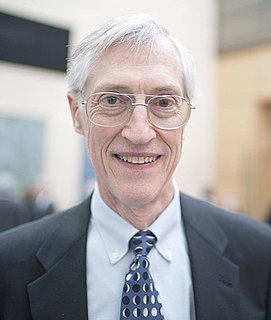A Quote by Alain de Botton
The bourgeois thinkers of the eighteenth century thus turned Aristotle's formula on its head: satisfactions which the Greek philosopher had identified with leisure were now transposed to the sphere of work, while tasks lacking in any financial reward were drained of all significance and left to the haphazard attentions of decadent dilettantes. It now seemed as impossible that one could be happy and unproductive as it had once seemed unlikely that one could work and be human.
Quote Topics
Any
Be Happy
Bourgeois
Century
Could
Dilettantes
Drained
Eighteenth Century
Financial
Formula
Greek
Greek Philosopher
Had
Haphazard
Happy
Head
Human
Identified
Impossible
Lacking
Left
Leisure
Now
Once
Philosopher
Reward
Seemed
Significance
Sphere
Tasks
Thinkers
Thus
Turned
Unlikely
Unproductive
Were
Which
While
Work
Related Quotes
"If it wasn’t for the mist we could see your home across the bay," said Gatsby. "You always have a green light that burns at the end of your dock." Daisy put her arm through his abruptly but he seemed absorbed in what he had just said. Possibly it had occurred to him that the colossal significance of that light had now vanished forever. Compared to the great distance that had separated him from Daisy it had seemed very near to him, almost touching her. It had seemed as close as a star to the moon. Now it was again a green light on a dock. His count of enchanted things had diminished by one.
Now intelligence seemed quantifiable. You could measure someone's actual or potential height, and now, it seemed, you could also measure someone's actual or potential intelligence. We had one dimension of mental ability along which we could array everyone... The whole concept has to be challenged; in fact, it has to be replaced.
The place resembled a new model prison, or one that had achieved a provisional utopia after principled revolt, or maybe a homeless shelter for people with liberal arts degrees. The cages brought to mind those labs with their death-fuming vents near my college studio. These kids were part of some great experiment. It was maybe the same one in which I'd once been a subject. Unlike me, though, or the guinea pigs and hares, they were happy, or seemed happy, or were blogging about how they seemed happy.
I could not clearly distinguish what was passing in my head; it seemed to me that I was under the influence of a horrible dream and that I had but to awake to find myself cured; at times it seemed that my entire life had been a dream, ridiculous and childish, the falseness of which had just been disclosed.
As I had once done thus in my breaking away from my Parents, so I could not be content now, but I must go and leave the happy View I had of being a rich and thriving Man in my new Plantation, only to pursue a rash and immoderate Desire of rising faster than the Nature of the Thing admitted; and thus I cast my self down again into the deepest Gulph of human Misery that ever Man fell into, or perhaps could be consistent with Life and a State of Health in the World.
I feel very strongly that I am under the influence of things or questions which were left incomplete and unanswered by my parents and grandparents and more distant ancestors. It often seems as if there were an impersonal karma within a family which is passed on from parents to children. It has always seemed to me that I had to answer questions which fate had posed to my forefathers, and which had not yet been answered, or as if I had to complete, or perhaps continue, things which previous ages had left unfinished.
They were still in the happier stage of love. They were full of brave illusions about each other, tremendous illusions, so that the communion of self with self seemed to be on a plane where no other human relations mattered. They both seemed to have arrived there with an extraordinary innocence as though a series of pure accidents had driven them together, so many accidents that at last they were forced to conclude that they were for each other. They had arrived with clean hands, or so it seemed, after no traffic with the merely curious and clandestine.
[In 1951] we were also told that the Russians could be parachuting from planes over our town at any time. These were the same Russians that my uncles had fought alongside only a few years earlier. Now they had become monsters who were coming to slit our throats and incinerate us. It seemed peculiar. Living under a cloud of fear like this robs a child of his spirit. It's one thing to be afraid when someone's holding a shotgun on you, but it's another thing to be afraid of something that's just not quite real.
In the nineteenth century some parts of the world were unexplored, but there was almost no restriction on travel.:; Up to 1914 you did not need a passport for any country except Russia.:; The European emigrant, if he could scrape together a few pounds for the passage, simply set sail for America or Australia, and when he got there no questions were asked.:; In the eighteenth century it had been quite normal and safe to travel in a country with which your own country was at war.
A collective insanity seemed to have seized the nation and turned them into something worse than beasts. The princess de Lamballe, Marie Antoinette's intimate friend, was literally torn to pieces; her head, breasts, and pudenda were paraded on pikes before the windows of the Temple, where the royal family was imprisoned, while a man boasted drunkenly at a cafe that he had eaten the princess' heart, which he probably had.




































